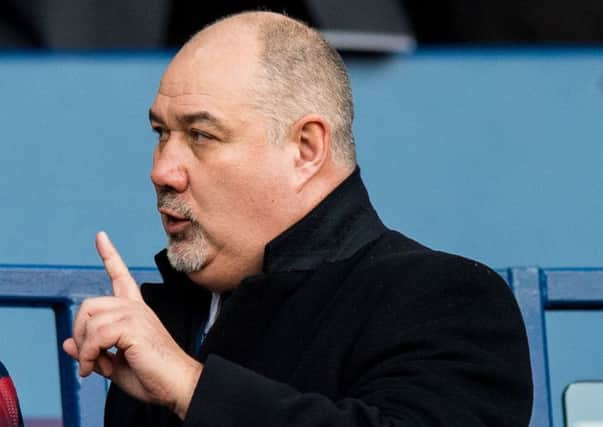SRU's record turnover a timely boost for Mark Dodson


A rise of £1.895m in “broadcast income” and £4.375m in “other operating income” were the two drivers to the Union’s £5.8m (11.3 per cent) increase in turnover compared to the previous year.
The growth in broadcast receipts has been attributed to payments from the Natwest Six Nations, while the creation of a lucrative television deal with South African media giants SuperSport to cover the Southern Kings and Toyata Cheetahs in the Guinness Pro14 will have also been a factor.
Advertisement
Hide AdAdvertisement
Hide Ad“Other operating income” relates to “the increased commercialisation of the Guinness Pro14 league, higher matchday hospitality and other game-day related sales volumes at BT Murrayfield, additional events on non-matchdays, and income from the British & Irish Lions”.
A drop from £11.013m to £10.837m in “commercial income” was explained as a consequence of “the tough sponsorship market” the SRU is currently operating in.
“Ticket income” is down marginally from £12.636m to £12.377m, with the SRU correctly pointing out that there was one fewer home international match this year compared with 2016-17. It is worth noting, however, that there were just as many Scotland matches at 67,000-capacity Murrayfield Stadium this year– with the national team’s clash against Georgia in November 2016 having been played in front of fewer than 16,000 people at Rugby Park in Kilmarnock. There was also an extra 1872 Cup match between Edinburgh and Glasgow Warriors at Murrayfield last season.
Scottish Rugby chief executive Mark Dodson is clearly hoping that these positive results will provide the Union’s member clubs with some reassurance ahead of what is shaping up to be a stormy annual meeting on 4 August.
After being on the receiving end of a damning judgement in the unfair dismissal case brought by former director of domestic rugby Keith Russell, and having endured some scathing criticism for the way Murrayfield has handled their controversial Agenda 3 project which aims to revolutionise the way club rugby in Scotland is organised and financed, the under-fire boss was clearly keen to highlight some of the good things that he is overseeing.
“Rugby in Scotland is enjoying a resurgence at international and professional level and the support for these teams has never been stronger. This has contributed to the strong financial position we can report this year, which will help us to continue to move the game forward at all levels,” he said. “We are committing record levels of investment into the grassroots game in Scotland in order to create a sustainable environment and help improve the standards of rugby being played across the board.”
In fact, expenditure on “club support and development” has risen by only 5 per cent from £2.766m to £2.913m, while expenditure on “international and professional rugby” is up by almost 16 per cent from £24.967m to £28.984m (and overall costs are up by just over 12 per cent).
This means that – based on a like-for-like comparison of information available in each union’s most recent financial reports – the SRU continues to lag well behind England, Ireland and Wales in terms of the direct financial support it provides the club game.
Advertisement
Hide AdAdvertisement
Hide AdDodson has claimed that £3.6m in new funding will go into the club game over the first five years of the Agenda 3 programme, which kicks off at the start of the 2019-20 season. However, a lack of consultation with the clubs, allied to the fact that domestic rugby is to foot the £4.125m bill for running an elite six-team league (known as Super 6) which will sit between the domestic and the pro game, has raised concerns that rank-and-file clubs will actually end up worse off.